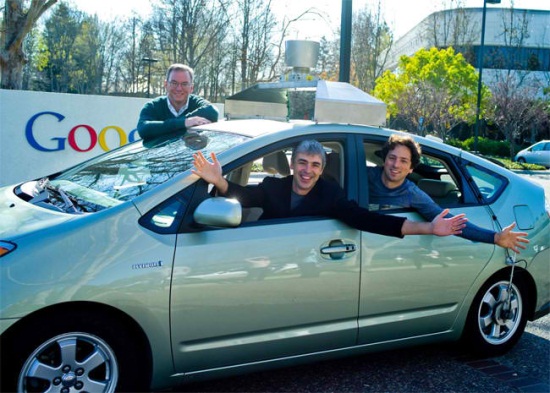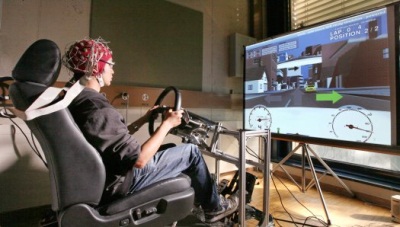More on Driverless Car Craziness
Posted on Jun 19, 2016 in Safety | 1 comment

Back in August, we gave you our take on the pros and cons of driverless cars. Among other smart things we said: “The big issue for a lot of people is losing control. It’s a bit like the drunk who won’t give up the keys to his car.”
The U.S. seems to be in the grip of a widespread fear of losing control—over everything from bladders to jobs. The individual has always been sovereign in this country, and who of our readers would give over the power and command of driving a car? Is technology taking over every aspect of our free choice?
Still, autonomous cars (so-called) are probably inevitable, at least in some situations. Many futurists are already happily jumping on board. Popular Science loves this stuff and recently came up with a story about cars dropping off their drivers, then going to search for parking spaces on their own.
Just thinking about the wild scenarios that could result, one of the the story’s commenters (D13) came up with the following:
What stops me from using the auto-tonomous mode of this car as a roadblock?
What happens if someone hits this thing and it shuts off?
How about someone puts a bomb in it and lets it park itself in front of an FBI building?
Can I get in and drive this thing if no one is in it and its still on?
Can I just have my own getaway car waiting when I rob the bank?
If I am in the car, in “auto-tonomous” mode, and I am drunk…do I still get a DUI? Technically I am not in control of the vehicle right?
“Officer! My Baby is in that autonomous vehicle! I forgot to get her out!”

Another enthusiastic POPSCI piece tells us that Nissan and a Swiss lab are working on mind-reading cars that anticipate the driver’s next move (right). The Germans too have been working on such a car, called BrainDriver.
As one commenter on that story suggested, what happens when the driver gets distracted looking at a beautiful chick? One commenter on my story, referenced at the top of this piece, pointed out the serious complexity, reliability, price and safety problems of integrating all this computerized, mechanical stuff into a viable vehicle.
And yet, MIT and Google are hard at work on driverless car tech, as pointed out here and here. It probably will happen in some form, sooner or later.
Maybe this evolves into a kind of liberal/conservative issue: The liberal, scientific types and the futurists see all the advantages of driverless, robotic cars. The other guys see the downside, the cost, and the nuttiness of driverless cars circling the block, waiting to park. I’m with the other guys on this one.





.gif)


The safety ramificatons of autonomous vehicles are truly staggering. The subsystems like steering, braking and throttle are relatively simple; Electric power steering can steer by computer command, and most cars have throttle by wire. Some are even brake by wire. Having the car know exactly where it is (within less than a foot, which is very important for autonomous vehicles) requires a lot of extra precision GPS equipment as well as a radio localizer to eliminate the GPS error. And, of course, accurate GPS is difficult in urban areas where the satellites are often blocked by structures. Now take many extra sensors including ultrasonic (not very accurate or reliable, especially in weather), cameras (also weather and lighting condition problems) radar (expensive and can be confused by other radars), and add a very, very complex set of control algorithms that are as safety critical as aircraft software. Now add mapping databases that must be extremely accurate so you don’t drive off a bridge or into a lake. Now put all this (designed by the same people who can’t seem to produce a single vehicle that doesn’t have recalls for defects) into a complex vehicle, and put another 100 of them in the same space, all moving and interacting. Sheesh, you’re not going to get me within a mile of that scenario. Here in Oakland County, Michigan, they can’t even put in traffic lights that work.